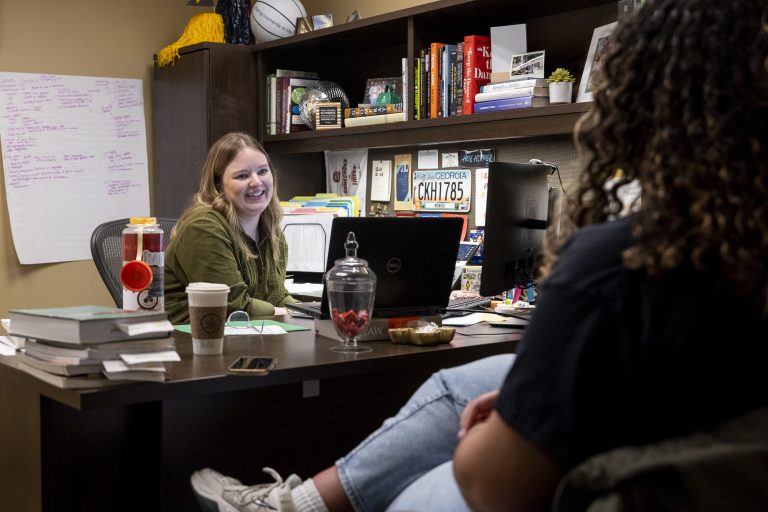Creating the best possible experience
By Jesse Berlin

Data from three important surveys this semester will help set University of Missouri students up for success.
The 12-question New Student Check-In survey is being sent to first-year students and first-year transfer students Jan. 31-Feb. 12.
“It lets us know if students are encountering challenges that may influence their success, such as their sense of belonging, ability to pay tuition and experiences in classes,” said Ashli Grabau, director of the Office of Strategic Initiatives and Assessment, which conducts the surveys.
“If a student has a concern, an intervention team member will reach out to the student with resources,” she added.
The Missouri Assessment of College Health Behaviors (MACHB), sponsored by the Wellness Resource Center, will be sent to a sample of undergraduate and graduate students at Mizzou Feb. 15-March 1. The MACHB asks students about alcohol and substance use, mental health concerns, perceptions of students’ health behaviors, and sexual health and power-based personal violence.
“The MACHB helps us design policies and programs to mitigate student risk, educate students and create a culture of mental and physical health,” said Sarah Parsons, senior research analyst.
Lastly, the Student Experiences Survey will be sent out to a sample of undergraduate students March 6-14. It asks students about their overall experience, from food and housing insecurity to their engagement in activities, organizations and campus employment.
When analyzing the data, Strategic Initiatives and Assessment also gathers input from the Student Affairs Assessment Board (SAAB), a body of student representatives.
“The work that SAAB and Student Affairs does with the survey data improves the lives of students and their on-campus experience,” said board member Josie Johnson, a senior. “It helps to have SAAB looking at the data since it will provide a different perspective and offer answers as to why students might have responded in a certain way.”
Assessment Coordinator Jessie Johns said all three surveys provide a “pulse check” of the student body, which helps campus administrators and staff enhance programs and services. “We want to make this the best possible experience for students, and having data makes it possible to improve that,” she said.